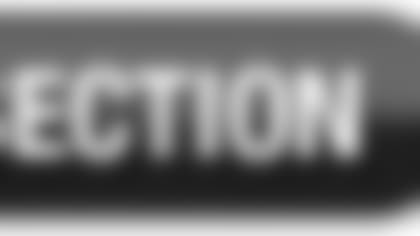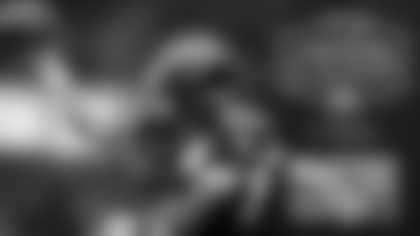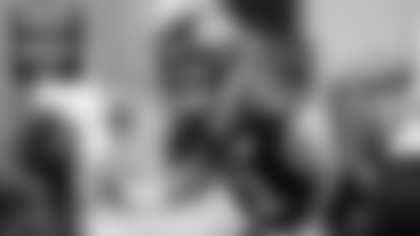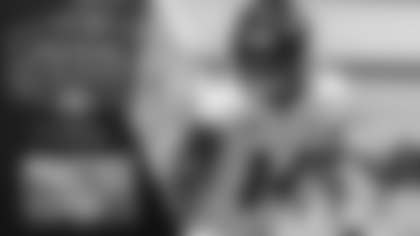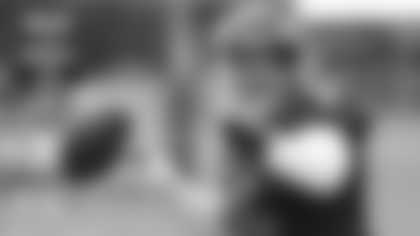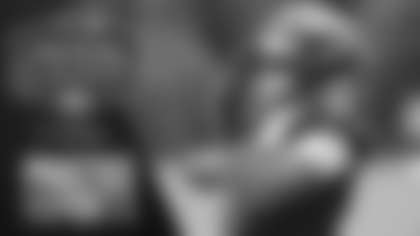Ravens special teams coordinator **Jerry Rosburg** has to make some tough decisions this offseason. Of course, there is the selection of a kicker and finding out who will take the majority of returns.
But through all that, another important judgment is how the Ravens will work around a new NFL rule banning three- and four-man wedges on kickoffs.
Some have said that the league outlawed wedges in a direct response to a play last year involving former Buffalo Bills tight end Kevin Everett, who was paralyzed after his helmet hit another player's during a hard tackle, but that's not the case.
During the sequence where Everett tried to wrap up former Denver Broncos returner Domenik Hixon, Everett was not engaging a wedge.
Still, multiple injuries have occurred when a special teamer hurtles into a cluster of three or four blockers all bunched tightly together in order to break the wall.
The penalty will cost 15 yards to the returning team, and since most wedges come between the 15- and 25-yard lines, the offending club will certainly be backed up to their own goal line.
Some teams might get flagged even when the back end of their return unit doesn't plan on using a wedge.
"We can't read whether they did that inadvertently or not," longtime NFL referee Peter Morelli told members of Baltimore's media on Saturday. "If three guys or more get together back there, that's all we can tell.
So Rosburg and assistant **Marwan Maalouf** have put in extra hours coming up with a strategy for 2009, not to mention speculating what other teams will do.
Last year, the Ravens primarily used a three-man wedge with **Justin Bannan** as the captain in the middle and Jarret Johnson and Edgar Jones flanking him.
"There are going to be new methods of coaching that are going to be interesting to watch," said Rosburg. "I think anytime the rules change in the NFL – the coaches will adapt to it and ultimately the players will adapt to it. As we get into the preseason games, we're going to find out what teams are doing.
"In my opinion, some guys are going to try to find out a way to run their old system, with the new rules. Some guys are going to try to just say, 'Well, we can't run this, so we're going to have a new way of doing it.' It remains to be seen what everybody's going to do because the film is not out there quite yet."
The Ravens welcomed a group of league officials to practice over the weekend. Morelli, line judge Ron Marinucci and field judge Buddy Horton readily threw their yellow flags, too.
On Saturday, cornerback **Fabian Washington** argued a holding call he received when he grabbed a receiver outside of the legal 5-yard cushion. Marinucci handed out more than a few false start and offsides penalties.
But that is a good thing.
At this point in the offseason, the officials can offer teaching points to both coaches, like Rosburg, and players. The Ravens have already received their share of penalties.
Now, they have an entire training camp to clean them up.
Here are the other rule changes – in addition to the wedge rule – for the upcoming season:
- When a ball is kicked on a free-kick down (after a safety), at least three players on the kicking team must now be lined up outside each hashmark. One has to be outside the yard-line number.
- On a peel-back block, it is illegal to initiate contact with a blocker's helmet, forearm or shoulder to the neck or head of an opponent.
- Illegal contact to the head of a receiver garners a 15-yard penalty.
- If a fumble or backwards pass goes out of bounds, the game clock starts when an official places the ball at the inbounds line and the referee signals for play to resume.
- Players that stick their leg out to trip a ball carrier earns a 10-yard penalty. A whip motion of the leg is 15 yards.
- Even if a defender is blocked into a quarterback's lower body, a 15-yard penalty will be incurred. If there is no forceful contact, there will be no penalty.
- Intentional grounding will still be called when a quarterback is outside the tackles and his throw does not clear the line of scrimmage.
- Instant replay is now allowed to be used to determine if a quarterback fumbled or attempted a pass when the initial call on the field is incomplete pass.
A team can challenge whether a kickoff, punt or loose ball hit the sideline.
All illegal onside kicks will result in the receiving team getting the ball instead of a penalty being called and a re-kick.
Teams will no longer get a second chance at an onside kick if the first attempt goes out of bounds. That previously had applied only to the final five minutes of a game.
